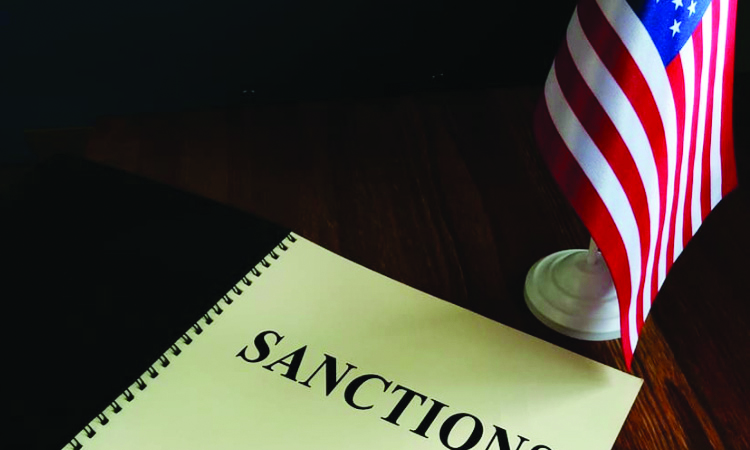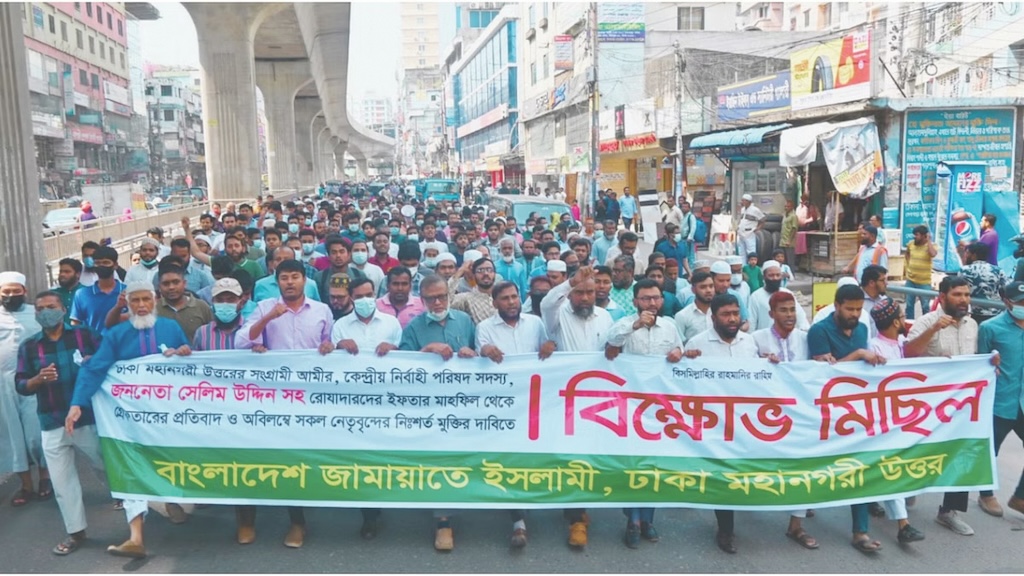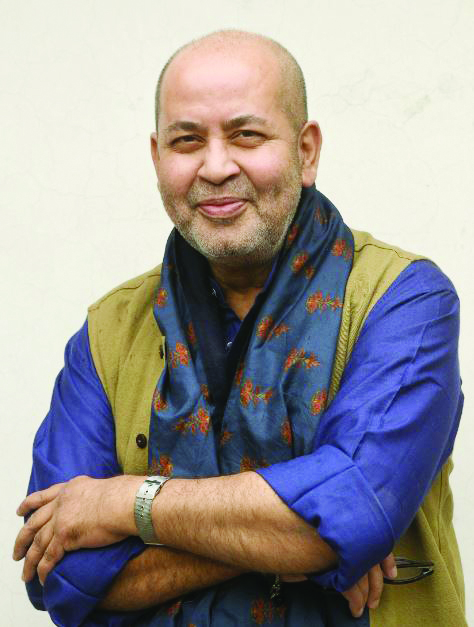The upcoming election in Bangladesh not only determines the nation’s political trajectory but also serves as a focal point for the geopolitical struggle between major powers, especially India, the US, and China, who are vying for influence and leverage in the region
By Pranay Sharma
- Sheikh Hasina, accused of election manipulation, solidifies her unchallenged authority through successive victories as the longest-serving leader
- Opposition parties, led by BNP, boycott the election after their demand for a neutral caretaker government is rejected
- BNP effectively leverages its diaspora to influence US lawmakers, convincing Biden Administration officials of Bangladesh’s plight under Hasina
- Modi and Hasina, in nearly a decade, forged a strong, trustful relationship benefiting both countries and the region
THE parliamentary election in Bangladesh, slated for January 7, has gathered special salience not only for the country but also for India and the region. The forthcoming election could give the ruling Awami League a fourth consecutive victory and make the incumbent Prime Minister Sheikh Hasina the country’s longest-serving leader.
But the Bangladesh Nationalist Party (BNP) and other opposition parties have decided to boycott the election as their demand to hold the election under a neutral, caretaker government, has been rejected by the Awami League government.
The election has also brought to the surface the differences between India and its strategic partner, the United States, especially in their approach to Sheikh Hasina and the main opposition, the BNP.
Both Washington and New Delhi say they support a democratic and stable Bangladesh. But they have adopted very different ways of showing it.
The Bangladesh election season in recent weeks has been marred by the opposition boycott, unrest in the streets and past allegations of rigging.
The US has tried to play a more interventionist role in Bangladesh with its call for “unconditional dialogue” between the parties, while India has termed Bangladesh’s election “an internal matter.”
“As close friends and partners of Bangladesh, we respect the democratic process in Bangladesh and will continue to support the country’s vision of a stable, peaceful and progressive nation,” Indian Foreign Secretary Vinay Mohan Kwatra told the media after a 2 plus 2 meeting between the Foreign and Defence Ministers of the US and India.
The issue of Bangladesh came up for discussion at the meeting between the two sides. Kwatra said, “We shared our perspective very, very clearly.” He made it clear that “It is not our space to comment on the policy of a third country. I think when it comes to developments in Bangladesh, elections in Bangladesh, it’s their domestic matter.”
Democracy in Disarray
From the 1990s Bangladesh did have a system where the caretaker government conducted elections. This was followed until 2011. But the country’s Supreme Court found the practice to be undemocratic as most other democracies, including India, do not force the incumbent government to resign and hand over control to a caretaker regime to conduct the polls.
It is done under the Election Commission and all other political parties accept and acknowledge its independence and fairness to conduct the election.
However, the BNP and other opposition parties in Bangladesh claim that fair elections can only be held under the supervision of a caretaker government. To press their demand, they held massive protests in the capital Dhaka and other cities in the country.

In addition to the threat of imposing visa sanctions against anyone who engages in election rigging, the US State Department has imposed sanctions on a number of serving and retired officials of the Rapid Action Battalion (RAB), a paramilitary force that has been accused of helping Sheikh Hasina’s party, the Awami League, win past elections
But when the protests turned violent and BNP and opposition parties resorted to arson and attack on security forces and government property, the authorities came down heavily on the protesters.
Most of the top leaders of the BNP are now behind bars. Though the second run of leadership of the BNP has begun a campaign for boycotting the election, it is not clear how voters will respond to it.
To counter the campaign, Hasina has put together an opposition, to show the forthcoming election as a contest between the Awami League and opponents like the Jatiya Party and other political parties.
However, these parties are unlikely to win more than a handful of seats and a landslide victory for the ruling Awami League and Prime Minister Sheikh Hasina, is predicted.
But will the election be regarded as legitimate with most of the opposition deciding to boycott it?
It is unlikely that the BNP will change its stand at this juncture even if most of its senior leaders are released from jail. The last date for filing nomination too, has passed and the Awami League and others have begun electioneering in full steam. The possibility of the polls being rescheduled at this stage to accommodate the BNP to make the election more participatory is not an option.
But even if the January 7 election is held peacefully, Hasina will still face a big challenge in convincing the outside world, particularly the United States and the European Union, that the election was legitimate and she enjoys a popular mandate to run Bangladesh.
Hasina Under US Pressure
The Joe Biden administration has already announced a series of punitive measures to check Bangladesh’s “democratic backsliding” and ensure the parliamentary election is free and fair.
In addition to the threat of imposing visa sanctions against anyone who engages in election rigging, the US State Department has imposed sanctions on a number of serving and retired officials of the Rapid Action Battalion (RAB), a paramilitary force that has been accused of helping Sheikh Hasina’s party, the Awami League, win past elections.
Sheikh Hasina, Prime Minister since 2009, has been accused of manipulating elections and intimidating political opponents to pave the way for her unchallenged authority and successive victories that have made her the longest-serving leader of Bangladesh.
To exert pressure, Biden omitted Bangladesh from the summit of democracies organised by him in past years, although he invited Pakistan and India along with other countries. His administration had also ignored Hasina when she visited Washington for a World Bank meeting in May.
The US stand has rejuvenated her opponents. Until some months back, The BNP was upbeat and held a series of rallies and meetings attacking the government. Other organisations, like the Jamaat-e-Islami, an Islamist organisation that maintains close links with Pakistan and collaborated with the Pakistani army during the country’s liberation struggle, were also feeling encouraged by the US position.
During Sheikh Hasina’s tenure, many Jamaat leaders were hanged for alleged “war crimes”. The country’s Supreme Court cancelled the organisation’s registration and prevented it from contesting elections. But in recent months, Jamaat leaders organised massive rallies in Dhaka, its first show of strength in 10 years.

The US claims to lay a lot of emphasis on democracy and human rights in its foreign relations. However, its track record in promoting them remains dubious. It has often called out countries for democratic backsliding but overlooked the same fault in others when its strategic interests were involved. A major reason for the US to single out Bangladesh for democratic backsliding is because of its growing partnership with China.
Though Hasina’s balancing act in maintaining strong ties with both Delhi and Beijing have at times raised concerns in the Indian establishment, there is also the realisation that she has been India’s best bet in Dhaka.
The US stand has rejuvenated her opponents. Until some months back, The BNP was upbeat and held a series of rallies and meetings attacking the government. Other organisations, like the Jamaat-e-Islami, an Islamist organisation that maintains close links with Pakistan and collaborated with the Pakistani army during the country’s liberation struggle, were also feeling encouraged by the US position
Some commentators think that the BNP has effectively used its diaspora to lobby with US lawmakers and convince Biden Administration officials about the sorry state of affairs in Bangladesh under Hasina’s leadership.
In recent months Hasina has made some effort to improve ties with the US, which is a key market for Bangladesh’s garment industry and an important investor. She took a smiling selfie with Biden at the Group of 20 summit in India and attended a reception with the President on the sidelines of the United Nations General Assembly in New York in September. But the outreach does not appear to have eased suspicion about her pro-China tilt among American policymakers.
Observers believe that more than the White House, it is the State Department that is following a tough policy on Hasina and is quite keen that she be replaced by the BNP. Such a policy goes against India’s interest and it is widely believed that if she is removed from power in Dhaka, it will allow the Islamist forces to come into prominence with huge support for religious fundamentalist organisations.
Modi’s Relation with Hasina
For nearly a decade, Prime Minister Narendra Modi and Sheikh Hasina have built a strong relationship of trust and confidence that has served both countries and the region well. Sheikh Hasina’s political acumen in ignoring the anti-Bangladeshi comments that have come up during domestic political discourse in India has successfully insulated bilateral relations and ensured that they remain strong.
The success of Indo-Bangladesh ties has allowed Delhi to build a case for how a constructive relationship with India could also benefit other neighbours.
India played a pivotal role in the Liberation War that led to the creation of Bangladesh in 1971, but over the decades much of that sheen in the bilateral ties had worn off. A series of regimes in Bangladesh actively encouraged anti-India forces to use Bangladeshi territory to carry out their fight against India.
In the past, the BNP was accused of allowing or even encouraging Indian insurgent groups like the United Liberation Front of Asom (ULFA), the armed separatist organisation of Assam, and similar outfits to operate from Bangladesh. The BNP also shunned cooperation with India in areas like trade, energy, connectivity and security.
After coming to power, Sheikh Hasina stabilised the relationship and drove out the anti-Indian elements from the country. But New Delhi and Dhaka fear that the Biden administration’s latest moves against Bangladesh may jeopardise the relationship.
Economic Renaissance
It is widely acknowledged that Sheikh Hasina has transformed the country’s economy. Bangladesh, with a population of 17 crores, has recorded an annual growth rate of 7 percent in the past decade and its social indicators are also better than most of its South Asian neighbours.
The World Bank has said that Bangladesh has made enormous strides in the past 50 years—from one of the poorest nations at birth, it is now one of the fastest-growing economies. In 2022, it sought and got a $4.7 billion loan from the IMF to tide it over a crisis created by disruptions in food, fuel, and fertiliser supplies following the COVID-19 pandemic and the war in Ukraine. By 2026, Bangladesh is expected to become a developing country.
During Sheikh Hasina’s tenure, many Jamaat leaders were hanged for alleged “war crimes”. The country’s Supreme Court cancelled the organisation’s registration and prevented it from contesting elections. But in recent months, Jamaat leaders organised massive rallies in Dhaka, its first show of strength in 10 years
In terms of geopolitics, Sheikh Hasina has refused to take sides in the ongoing power struggle among the leading powers for control of the Indian Ocean—Bangladesh is located at the apex of the Bay of Bengal, part of the Indian Ocean—an important transit zone through which an estimated 80 percent of the global maritime trade passes. Bangladesh’s Indo-Pacific policy calls for the establishment of “rules-based multilateral systems,” to promote “equitable and sustainable development,” while maintaining equidistance from the US and China.
However, in recent years Bangladesh has emerged as a battleground for India and China, with each seeking to establish its influence in the country. The prevailing tensions at the Line of Actual Control (LAC) have also hardened their positions further. The US stepping in to assert itself has complicated this situation further, with the US-China rivalry casting its long shadow on Bangladesh.
Bangladesh has substantial trade interests in the US and it is among the big markets for its garments. The US visa restrictions can significantly strain Bangladesh’s financial connectivity and labour mobility.
China Moves Closer
The strain in the Bangladesh-US relationship has allowed China to move closer to Sheikh Hasina. The Chinese Foreign Ministry said in a statement: “We firmly support Bangladesh in safeguarding its sovereignty, independence and territorial integrity.” China also said it supports Bangladesh in upholding independent domestic and foreign policies and pursuing a development path that suits its national realities.
The emerging situation has put India in a spot. China’s decision to stand with Dhaka has now made it imperative that Delhi uses its influence with Washington to bail out Sheikh Hasina. The US’ failure to oblige will be India’s loss.
India fears it will face a hostile regime in Bangladesh if Sheikh Hasina goes. On the other hand, China has maintained close relations with the BNP, whose leadership is also close to Pakistan.
Hence, there is little chance of China’s interests in Bangladesh being jeopardised if the BNP comes to power.
China’s economic footprint in Bangladesh has been increasing since 2013, all the more after President Xi Jinping visited the country in 2016. Since joining China’s Belt and Road Initiative (BRI), Bangladesh has received over $38 billion of investment from China. China is also its largest trade partner; the Sino-Bangladesh bilateral trade is currently worth $25 billion. In comparison, Bangladesh’s trade with the US is around $10 billion and with India, it is around $18 billion.
However, the mainstay of China’s bilateral relations with Bangladesh is based on the defence partnership. China now accounts for 72 percent of Bangladesh’s defence supplies. Dhaka is also the second biggest export destination for Chinese arms after Pakistan. China’s growing presence in Bangladesh’s defence sector is a major cause for worry for both the US and India.
But so far, India has found it difficult to convince the US why it is important to support Hasina as she is the only leader who can provide stability in the country and keep the Islamists and fundamentalists in check. It remains to be seen if things change after the forthcoming election in Bangladesh.
